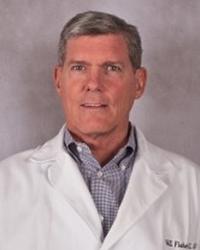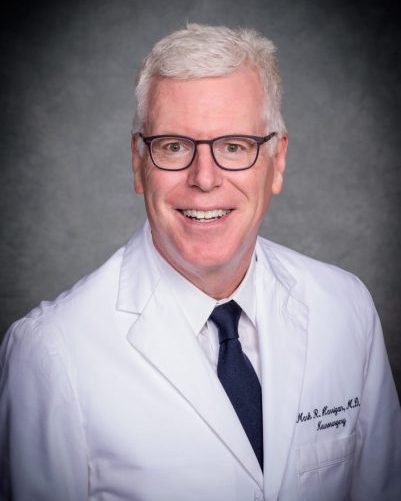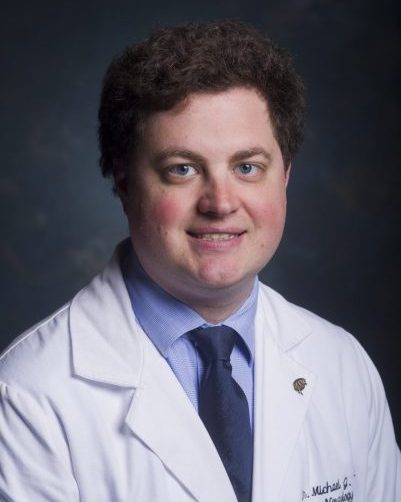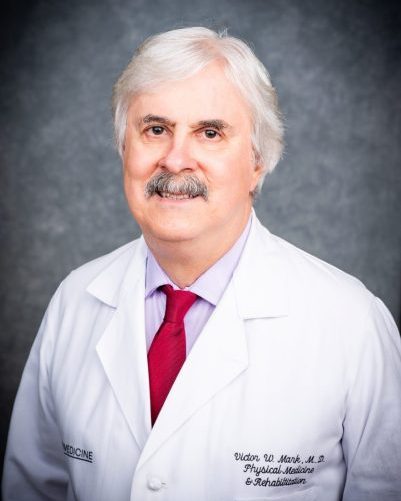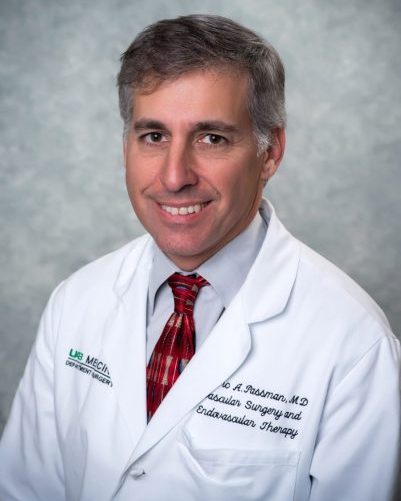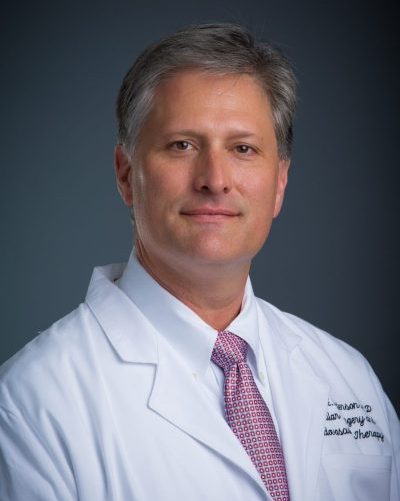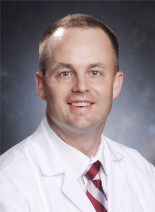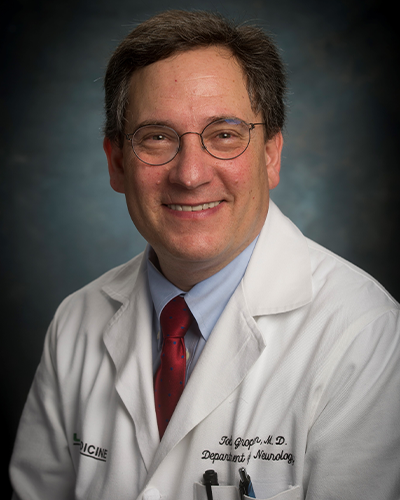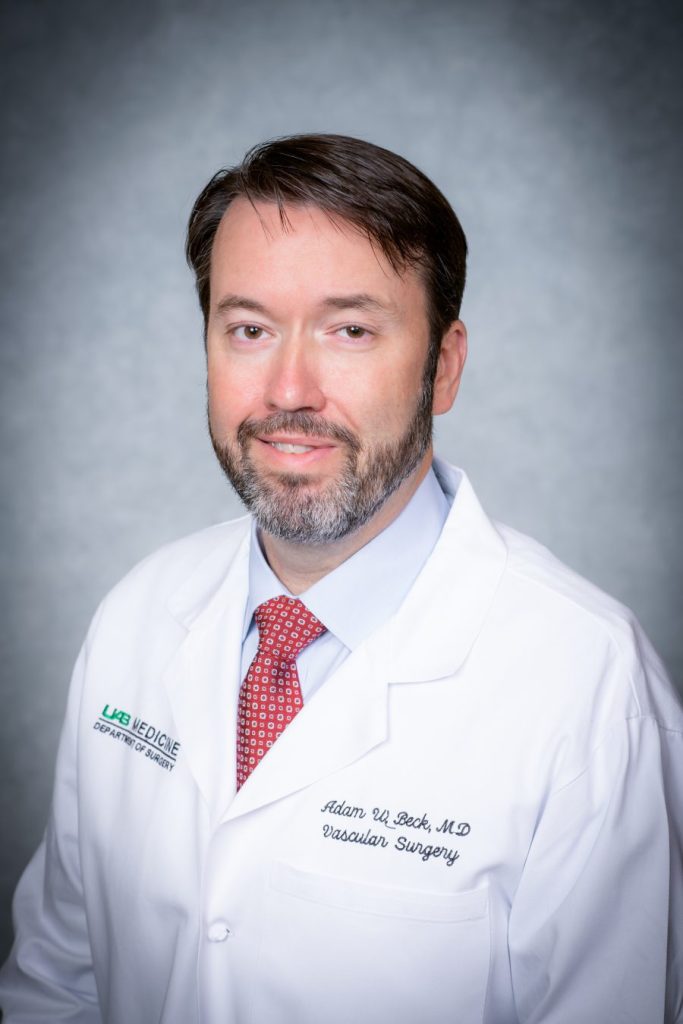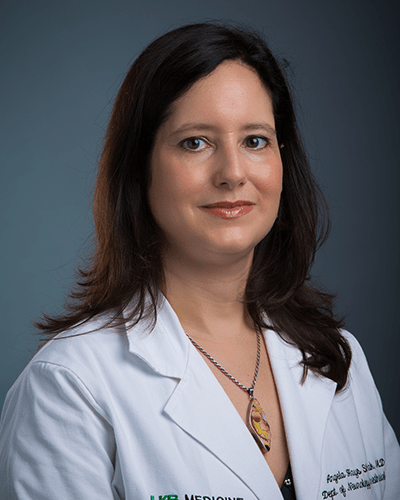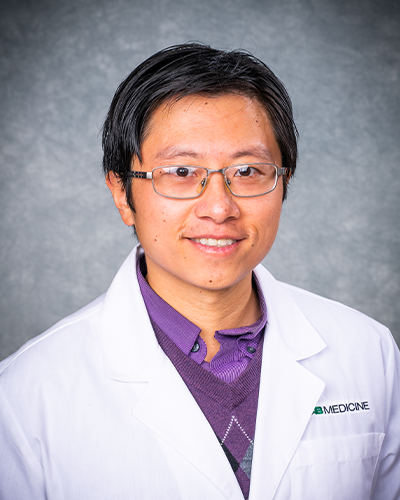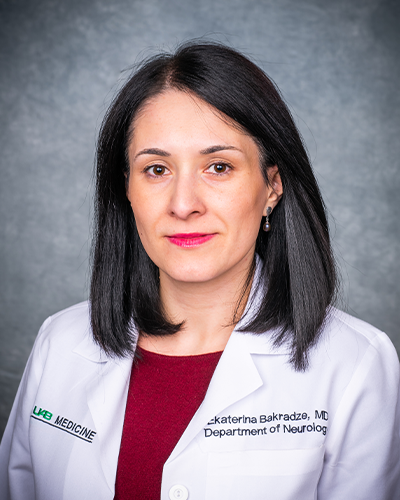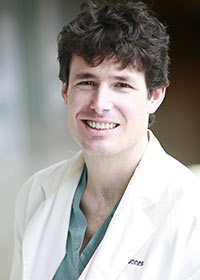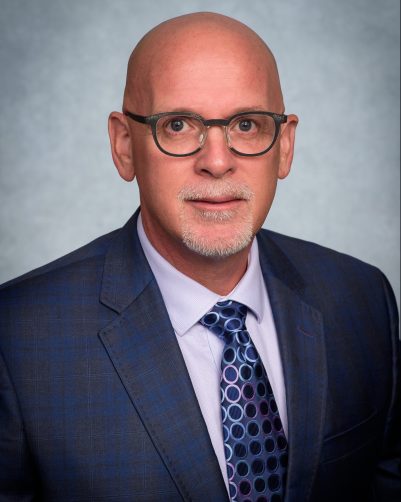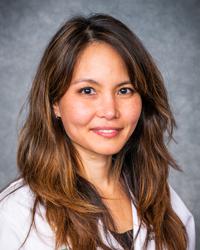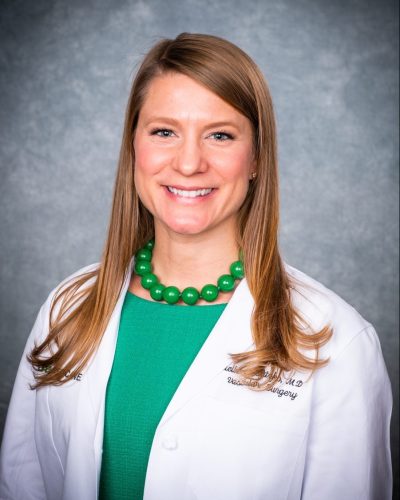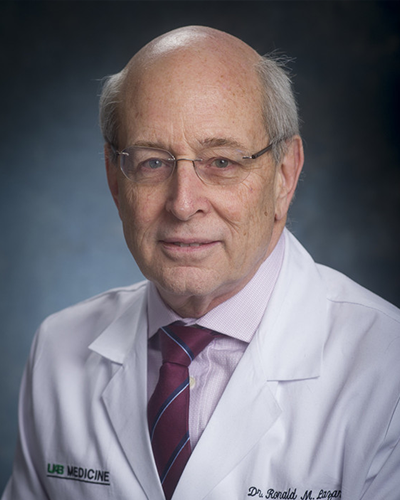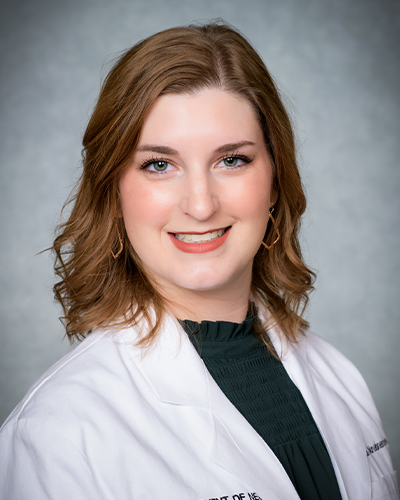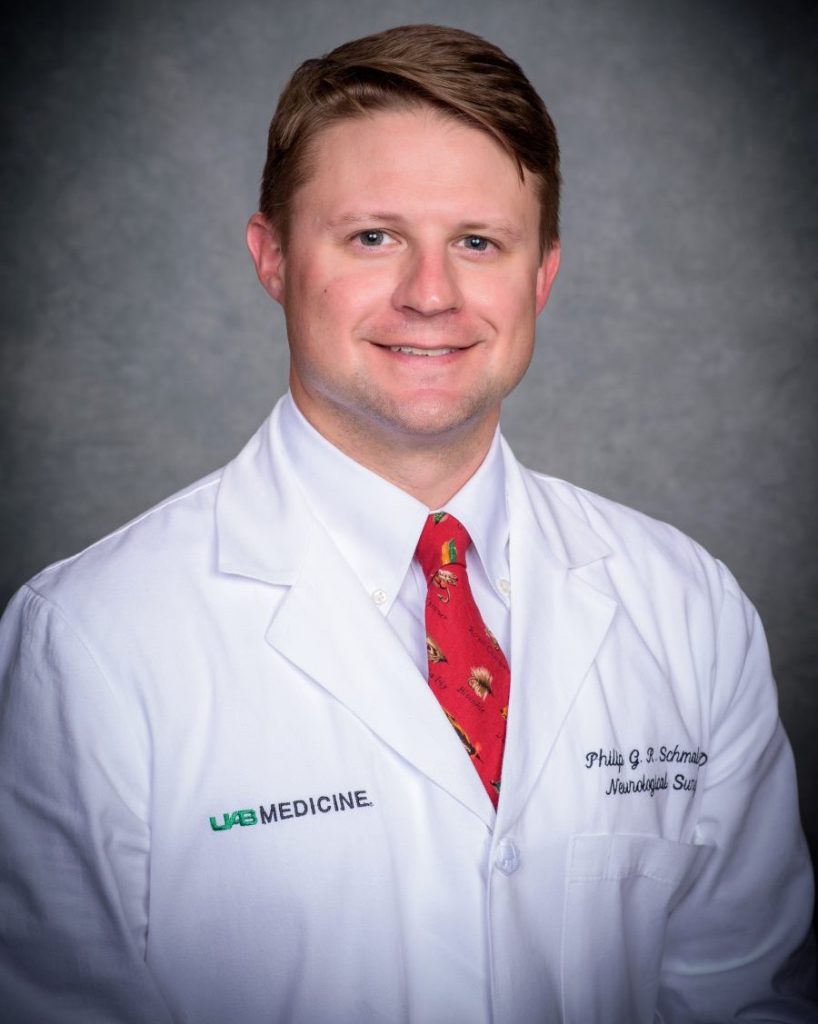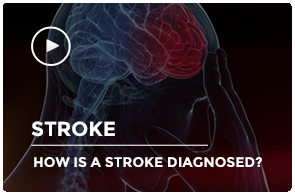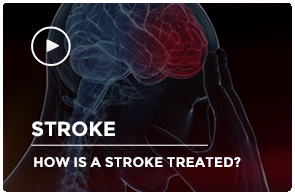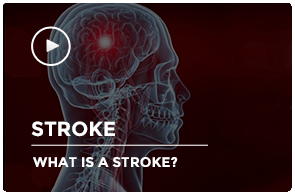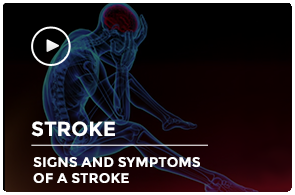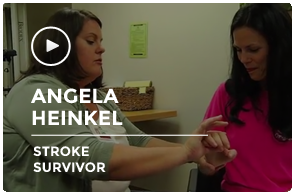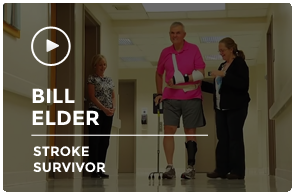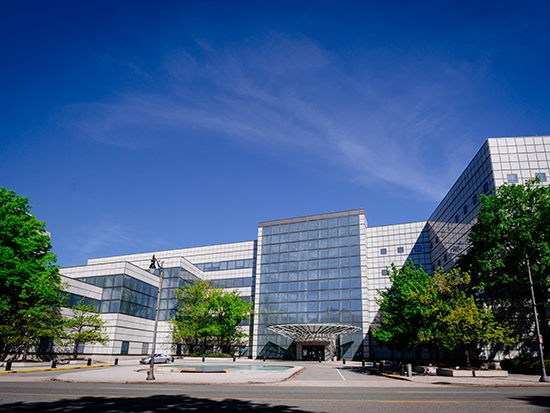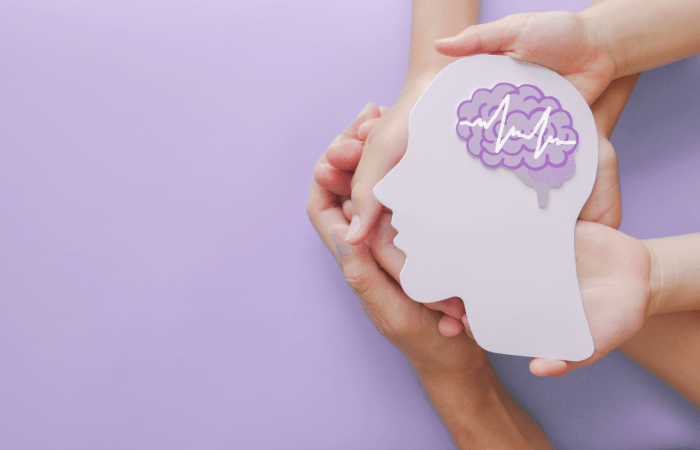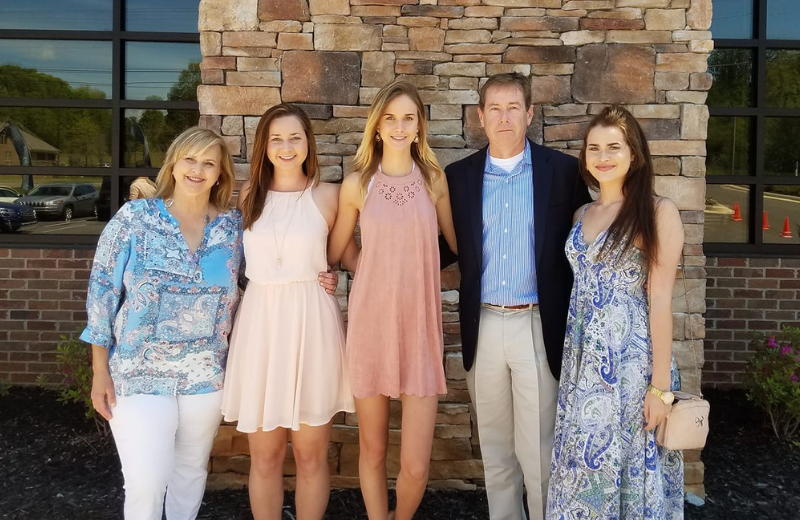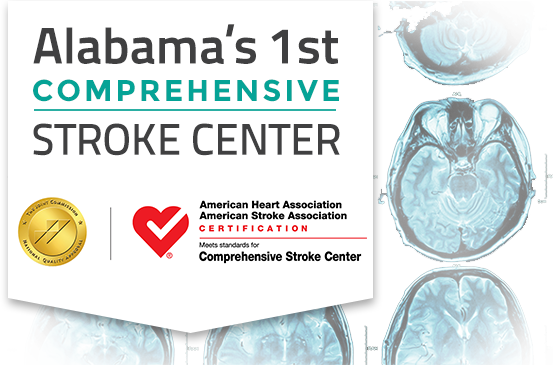
We are the first Comprehensive Stroke Center in Alabama.
Stroke occurs when the blood supply to the brain is shut off or reduced, causing oxygen-starved brain cells to die. It happens in an instant without reason or warning. And in that instant – when you most need to make the right decision – you are likely unable to make it. Knowing what to do next will change your world.
We are UAB Medicine. We are the first Comprehensive Stroke Center in Alabama. And that means that as soon as you arrive, we are prepared to deliver the most current stroke treatment possible.
Stroke Resources
Most strokes occur when the blood supply to a part of the brain is shut off or reduced, causing brain cells to die as they are starved of oxygen. These are called ischemic strokes, which account for about 80 percent of stroke cases. Ischemic strokes usually are caused by blockage of an artery in the brain from a blood clot. If the patient is brought to the hospital within several hours after symptoms begin, ischemic strokes usually can be effectively treated, either with medicine to dissolve the blood clot or by removing the clot with a thin tube called a catheter, or both.
Roughly 20% of strokes result from bleeding in the brain, known as hemorrhagic strokes. This bleeding usually is caused by high blood pressure, age, or ruptured or abnormal blood vessels in the brain. Hemorrhagic stroke patients usually need intensive care, and they also may need surgery to remove the clot or repair the blood vessel. Stroke can cause the loss of some or all functions controlled by the part of the brain that is damaged. Speech, movement, and memory are the functions most commonly affected by stroke, but the severity depends on which part of the brain was affected and how much damage occurred before receiving treatment. Recognizing stroke symptoms and seeking medical care immediately are crucial factors in preventing death and disability. Click here to learn more about the signs and symptoms of stroke.
Why UAB
UAB was the first hospital in Alabama to be certified as a Comprehensive Stroke Center by the American Heart Association/American Stroke Association and The Joint Commission, a nonprofit national health care accreditation agency. This elite designation recognizes hospitals that maintain the staff, training, and technology to treat patients with the most complex strokes, at any time of day or night. We handle more than 1,800 stroke cases annually, the most serious of them within our dedicated Neurointensive Care Unit and Stroke Unit. U.S. News & World Report consistently ranks UAB Neurology and Neurosurgery among the top programs of their kind in the nation.
Stroke care at UAB is delivered by a large team of expert stroke physicians who are on duty 24/7. UAB has more board-certified vascular neurologists, neurointensivists, endovascular neurosurgeons, and vascular neurosurgeons than any other hospital in Alabama, along with 350 nurses with stroke-specific training. Our 36-bed Neurosciences Intensive Care Unit is among the largest in the United States. Because UAB is a major center for stroke research, patients may be eligible to participate in clinical studies of promising new treatments for stroke, so they could receive therapies not available at most other medical centers.
When a stroke patient arrives at the UAB Hospital Emergency Department, a “Code Stroke” is activated, triggering a rapid response team that evaluates the patient to ensure that the most appropriate care is provided in the shortest time possible. Our range of advanced treatments includes acute therapies such as the clot-busting medication Alteplase (tPA), along with catheter-based procedures such as thrombectomy, aspiration, and stenting. The extensive resources and technologies of our neurovascular stroke service are not available at other hospitals in the area.
After admission and initial management, stroke patients are further evaluated in our dedicated Stroke Unit, which is staffed by nurses, physicians, and rehabilitation therapists who specialize in stroke. Every patient undergoes a thorough, individualized diagnostic workup with advanced imaging technologies to determine the underlying cause of the stroke.
When it’s time to begin the recovery process, UAB Spain Rehabilitation Center provides comprehensive rehabilitation programs that are customized to each patient. UAB created a Stroke Recovery Clinic (SRC) to help stroke survivors recover more effectively, with fewer long-term effects. One of only a few clinics of its type in the country, the SRC combines speech, occupational, and physical therapy with neuropsychology care and social work services.
UAB strives to provide the highest quality evidence-based stroke care to our community. The information listed in this report provides data on key performance measures that reflect our commitment to excellent care.
Videos
Resources
- Stroke Transfer Considerations
- Stroke Facts and Numbers
- How to Identify a Stroke
- National Stroke Association
- NIH – Stroke
- UAB Division of Cerebrovascular Disease
- StrokeNet
Related Specialties
Clinical Trials
Speak to your physician about your options and browse the link below for more information
Latest News
View All News-
Three UAB students receive Department of State’s Critical Language Scholarship
May 15, 2025
-
Bringing the worlds of arts and sciences together through mentorship, UAB graduate eyes medical school
April 30, 2025
-
The new Miss UAB is Melissa Mercer
November 15, 2024
-
New Mr. and Ms. UAB 2025 are Rakshith Ramdas and Samanvi Vootukuri
November 4, 2024
-
UAB neuroscience student Ayush Jain selected for the distinguished UK Fulbright Summer Institute 2024
May 30, 2024

